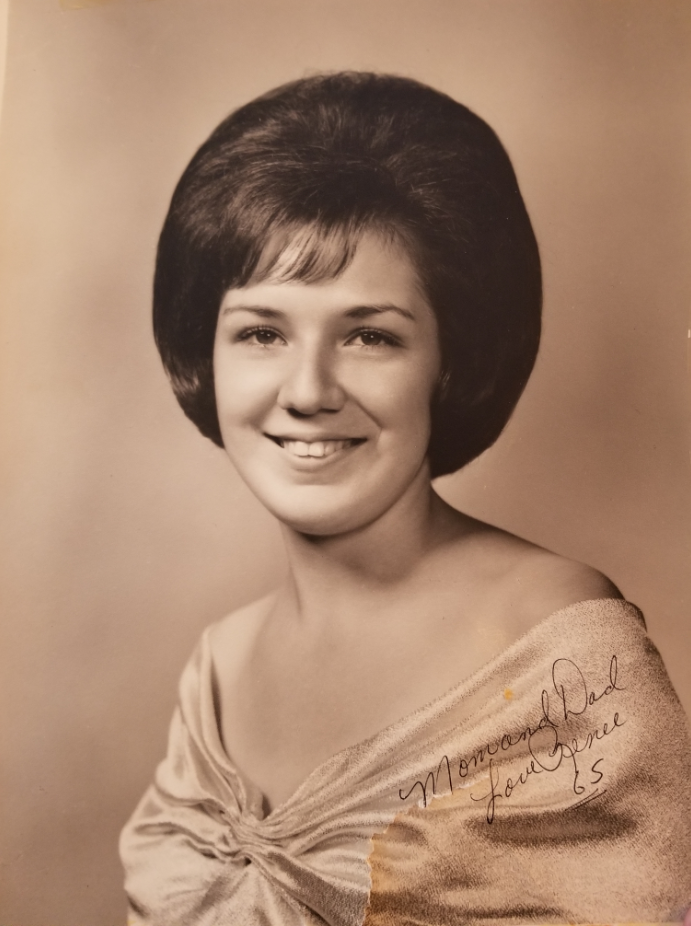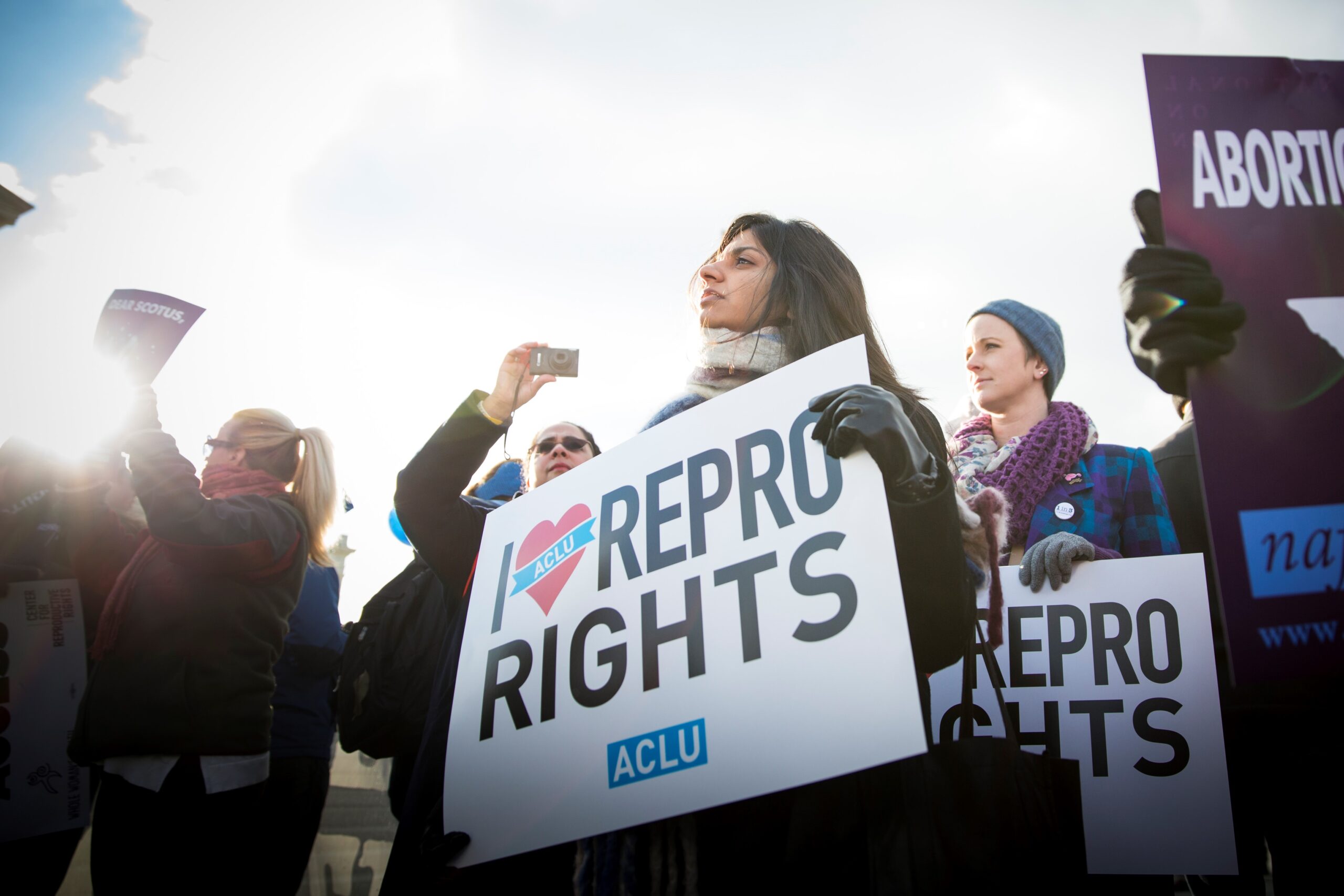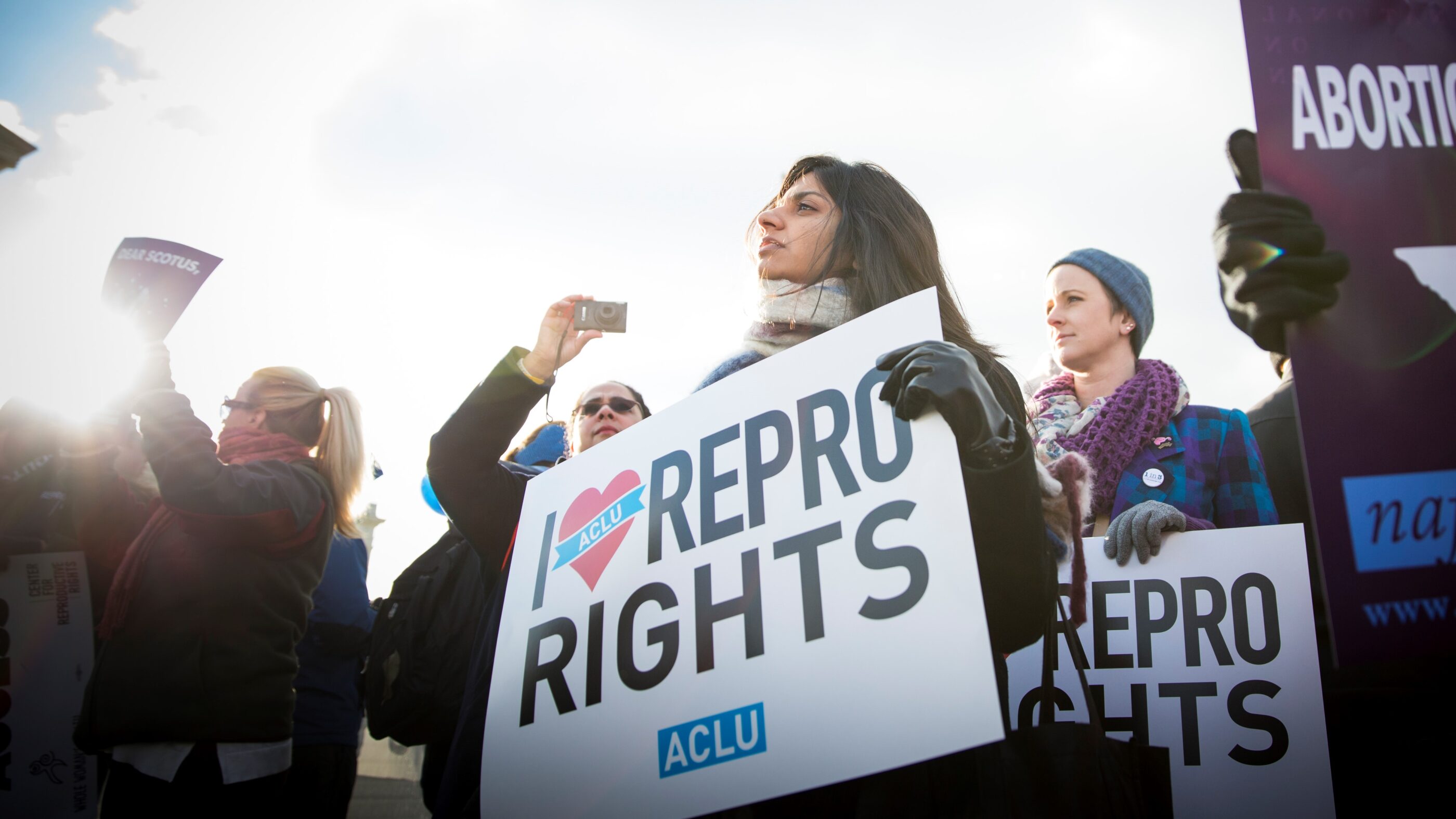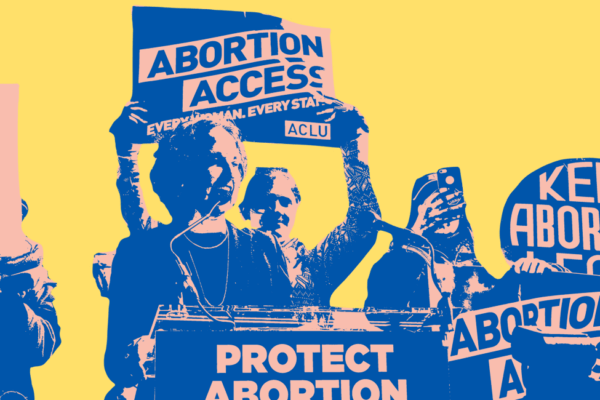Renee Chelian still vividly recalls the terrifying experience she endured while a junior in high school more than 50 years ago.
“When I was 15 years old, I had an illegal abortion,” she Ms. Chelian, now 68. “I’m lucky to have survived.”
Her harrowing story illustrates the extreme dangers of ending an unwanted pregnancy before the U.S. Supreme Court’s landmark Roe v. Wade decision in 1973 recognized a constitutional right to abortion.
“My boyfriend’s father was a state representative, so he had a lot of connections,” says Ms. Chelian, who grew up in the Detroit-area city of Highland Park. “He found someone for us, and my parents made the arrangements. Even though my mother was an Irish Catholic and my father an Arabic Muslim, they both were brave enough to support the decision. It was what needed to be done for me to have a chance at finishing my education.”
Secrecy was paramount because anyone involved in the procedure could end up in prison for years. Phone calls were made using coded language. Her dad drove her to a pre-arranged parking lot, where they were put in another car, then blindfolded and driven to a warehouse.
“There were cement walls, and cement floors covered with grease stains,” she says. “I remember all these other women, sitting there in chairs, waiting. I just kept looking at the floor.”
What she encountered was common during those dark days before Roe v. Wade: dirty knives, filthy mattresses, no antibiotics, and daunting financial costs.
At a time when the average annual income was only about $5,000, the abortion cost $2,000. Despite the staggering price, the procedure was botched. Ms. Chelian doubts that the person doing it was an actual doctor. If not for the assistance of a sympathetic family physician, who provided much-needed medication to stave off infection and complete the termination, she might have died.
It took almost two weeks before the pregnancy passed and the ordeal ended.
“It was humiliating, dangerous and very secretive,” she says. “My father told me that I should never mention it again. So I didn’t. Not for 20 years.”
It wasn’t until the 1980s, when she decided to participate in a national effort involving people speaking out about the impact of illegal abortions on their lives, that she talked about it with anybody, including her husband.
Ms. Chelian now has two adult daughters, both of whom, along with her husband, help her run the three Detroit-area family planning clinics she founded to ensure that no one would have to endure the horrors she experienced.
What appalls her now is the prospect that access to safe and legal abortions is in extreme peril.

“Making Life A Living Hell”
Over the decades since the Roe decision, the intensity of opposition to legal abortion has ebbed and flowed. Now, with Donald Trump in the Oval Office and a staunchly conservative majority in control of the Supreme Court, that opposition has reached a fevered pitch, both on the streets and in legislatures across the country.
Anti-abortion activists, feeling empowered, are “making life a living hell” for abortion providers and patients alike, says Ms. Chelian. She describes the constant harassment of clinic staff, who are routinely subject to verbal abuse, threats, and having their personal information posted on anti-abortion web sites.
It’s not just her clinic. The National Abortion Federation (NAF) recently reported that U.S. abortion providers faced an “alarming escalation” in incidents of disruption and intimidation in 2018. Trespassing reached the highest level since 1999, when the NAF began recording such incidents. Providers also reported record levels of picketing, and the most vandalism since 1990.
At the same time, expecting the U.S. Supreme Court to either uphold new laws that drastically curtail access to abortions or overturn Roe completely, lawmakers are rushing into action. According to a recent report by the Guttmacher Institute, in the first six months of 2019 state legislatures across the South, Midwest and Plains states “have enacted 58 abortion restrictions, 26 of which would ban all, most, or some abortions.”
Despite strong public support for reproductive freedom, Michigan legislators have joined those efforts. At least a dozen anti-choice bills have been introduced in the state House and Senate this session. Although Gov. Gretchen Whitmer has promised vetoes, other strategies are underway that don’t require the governor’s signature to become law.
Two anti-abortion groups recently received approval from the state Board of Canvassers to begin gathering signatures to put separate measures on the ballot. One would criminalize abortions performed after cardiac activity is detected in a fetus or embryo, which can happen as early as six weeks into a pregnancy. A second petition drive seeks to ban a safe second-trimester procedure known as the dilation and evacuation method. If either effort qualifies for the ballot, legislators would have the option of passing them directly into law, circumventing both the will of voters and a likely veto from the governor.
The Power of Speaking Out
Unlike Renee Chelian, Jessica Gird came of age at a time when she could obtain a safe, legal abortion. For that, she is incredibly thankful.
Now 42, she was 19 when she became pregnant. In an abusive relationship with a much older man and struggling with a drug addiction at the time, she says the emotional stress of parenting would have been overwhelming.
“Honestly, I don’t believe I would be alive today if I had gone through with the pregnancy,” says Ms. Gird. “With the way my life was at 19 years old, there’s no way I would have been able to handle having a child.”
Two years ago, she wrote about her abortion and posted the story on a web site created by the nonprofit advocacy group RECLAIM, which supports abortion and reproductive rights.
Ms. Gird says she went public with her story because it is important to speak out about a procedure that’s much more common than most people realize. It is estimated that one in four American women will have had an abortion by the time they are in their 40s. Yet, because of the public shaming and stigma fostered by abortion opponents, many people are reluctant to talk about their experiences. By speaking out, says Ms. Gird, pro-choice advocates can reclaim the narrative from extremists on the right.
“For people going through this, when they hear from others who’ve had the same experience, it helps them know that they can survive it and come out the other side and be just fine,” says Ms. Gird, a social worker who specializes in the adoption process and placing children in foster care.
She has also formed a group of people who serve as clinic escorts, helping patients navigate anti-abortion activists who are often outside clinics, doing everything they can to harass and dissuade people from following through with the decision to terminate their pregnancies.
“In the beginning, it was just me and my best friend,” says Ms. Gird. “Now there are 25 to 30 of us. We go out every Saturday.”
Doing so, she says, is empowering and therapeutic. Speaking out, and helping as an escort, are also how she staves off the dread she feels when looking at the political momentum the anti-abortion side is gaining.
“My concern is for the younger people coming up,” she says. “I have so much fear for them and their families, so much fear that we are heading back toward the pre-Roe days of back alley abortions and senseless deaths.”

Pushing Against the Tide
As efforts to turn back the clock to a darker time increase, there is a corresponding commitment on the part of the ACLU and its allies to fight the assaults on reproductive freedom. In the past six months alone, lawsuits were filed in five states to strike down laws drastically restricting abortion rights.
The ACLU’s work focuses on a range of issues, including protecting access to affordable contraception, protecting a person’s ability to make personal, private decisions about pregnancy and abortion, and fighting pregnancy discrimination. Included in that is a commitment to advocate on behalf of people whose reproductive autonomy is constantly threatened.
“Every single session, bills get introduced that are intended to restrict our right to make the best health care decisions for ourselves or to make it more difficult for clinics to provide needed reproductive health care,” says Merissa Kovach, policy strategist for the ACLU of Michigan. “But what we’re seeing now has a different level of intensity. It is apparent that anti-abortion legislators have been emboldened.”
“What’s especially frustrating,” adds Ms. Kovach, “is that they are pushing laws that a solid majority of Michiganders are clearly opposed to.”
One recent poll showed 58 percent of the state’s voters oppose new laws restricting abortions, compared to only 31 percent in support.
In addition to lobbying the legislature to keep bad bills from becoming law, Ms. Kovach and others recently succeeded in persuading the state’s Board of Canvassers to remove much of the emotion-charged rhetoric anti-abortion zealots wanted included in the referendum petitions now being circulated.
“We see the ACLU involved in all these issues,” says Aisha George, a registered nurse at an abortion clinic on Detroit’s northwest side. “We are so appreciative of all the hard work.”
She hasn’t always had that attitude about abortion rights.
Embracing the Freedom to Choose
Growing up in what she describes as a “very religious family” and attending Catholic schools, Ms. George vehemently opposed abortion – until she needed one.
Eight years ago, she gave birth to her first child, a boy. The pregnancy was very difficult, requiring an emergency C-section that took a heavy physical toll. A year later, despite taking birth control, she unexpectedly became pregnant again. Instead of joy, the news filled her with fear.
“I just wasn’t ready to put my body through that again,” Ms. George says.
The experience proved to be a revelation.
“Growing up, I had deeply believed one thing,” she says. “Then, almost overnight, those beliefs completely changed. That personal experience really made me realize that having an abortion is not something anyone wants to do. Whatever the reason – physical, financial, personal – it is something they have to do.”
That realization motivated her to become a registered nurse at a clinic that each month sees hundreds of patients – people who would be placed in extreme jeopardy if Roe is overturned. History tells us abortions won’t stop.
“What will go away is the ability to access what is now one of the safest medical procedures in America,” says Ms. George. “Instead, people will be showing up in hospital emergency rooms dying of sepsis or bleeding to death.”
“We are very concerned, and very nervous about what is happening,” she adds. “These are issues of justice. Economic justice. Racial justice. Social justice. And they are very much in danger. Now is not the time for people to be comfortable. Now is the time to act.”
Knowing how lucky she is to have survived the horrors of an illegal abortion, Renee Chelian is in complete agreement with that sentiment.
“We are going to fight against what’s going on as hard as we can for as long as we have to,” says Ms. Chelian. “And we need the public to fight with us, to be our partners. It is the only way sanity will prevail.”


